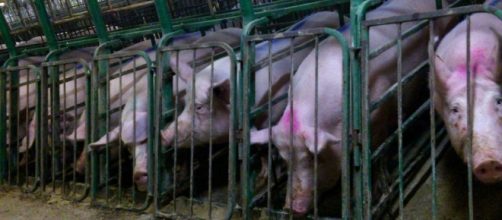Yet again, a Judge has ruled that an ag-gag law is Unconstitutional, which can mean everything for vegans and animal rights activists nationwide. This time it happened in the state of Utah.
History Of Ag-Gag Laws
Ag-Gag laws are also known as Agriculture Gag laws, they are made for only one purpose, and that is to prevent workers on factory farms from showing the harm that is done to animals as well as the conditions inside the factory. People who are caught whistleblowing can then be prosecuted if they didn't have the permission of the farm owner.
This has been occurring off and on since 2011 when the fight for these laws started to become prominent. 20 states have either passed laws or had them knocked down since 2011, with several still pending. 7 states as of today still have these laws on their books, namely Arkansas, Montana, North Dakota, Missouri, Iowa, Kansas, and North Carolina. This particular case happened because, in 2013, animal rights activist Amy Meyer filmed a sick cow being moved via tractor at a slaughterhouse. If she were to have been convicted, she could have spent upwards of 6 months in prison.
Why it's bad
Many people might support these bills, claiming that recording what happens inside the walls of a factory farm would be akin to wiretapping.
However, US District Court Judge Robert Shelby, who ruled that the law was unconstitutional, disagrees. Shelby believes that banning people from whistleblowing in agriculture is a violation of one's First Amendment right to free speech, despite the state's objection, claiming that the law is in place to ensure worker and animal safety. He also believes that by banning free speech in agriculture, it can open the door to free speech violations elsewhere, like making a music video, or any kind of video criticizing the government or anything.
Anyone who would make a video showing the bad conditions in a supermarket, or even poor customer service at a McDonalds, could easily be prosecuted under the same point of view and the same arguments used to justify these laws.
Shelby also pointed out that some of the backers of the law did not have animal safety in mind, and instead wanted to block whistleblowers because they claim these people are trying to destroy the animal industry, NPR News reported.
As time goes on, more laws that censor the free speech of citizens will be knocked down. The public has the right to know about the conditions in which their food is made, and the courts seem to agree.


